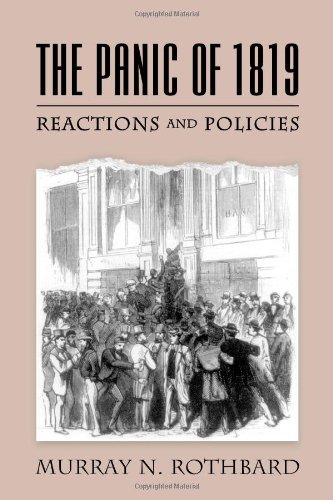There’s a reason HBO’s special on the Oracle of Omaha is titled “Becoming Warren Buffett.” But it’s not what you might think.The documentary spends little time explaining or depicting how Buffett turned a few thousand dollars into a $74 billion colossus.
Now at age 86, he seems to be thriving, despite consuming things my doctors tell me to avoid, food from McDonald’s and sugary Coca-Cola drinks (he has a fountain set up in his office for frequent refills). He’s lived in the same house in Omaha for decades and has a five minute drive to work. If the market is down he limits his expenditure on breakfast to under $3.00, if the market is up, he splurges on a $3.17 egg McMuffin that he grabs at the drive through window.
Yes, the multi-billionaire drives himself, while the candidate he supported for president, Hillary Clinton, admitted she hasn’t driven a car since 1996. He is the one person average people identify with capitalism. The Berkshire Hathaway annual meeting is called the “Woodstock of Capitalism.” However, he must not believe in the power and ethics of markets; Otherwise he wouldn’t have vowed to give 99% of his money away to charities and non-profits.
Buffett believes Bill and Melinda Gates can more efficiently give his money away than he can. And more importantly, not-for-profits, without any price signals, can accomplish their goals and make a better world than the for-profit companies he invests in like, Coca-Cola, See’s Candy, Dairy Queen and the host of other businesses he owns through Berkshire Hathaway.
Even as a kid, Buffett was constantly making money, delivering papers and whatnot. Viewers won’t be surprised he was nerdy kid, good with numbers, bad at school, and awful with girls.
He couldn’t have had better training at home. In the documentary, Buffett’s father Howard, is mentioned sparingly. Warren called his dad “a true believer” and decided he didn’t want to be like him.
That’s too bad. Howard Buffett and Murray Rothbard met in 1955 “at Ludwig von Mises’s seminar in Austrian economics,” writes Joe Stromberg. “Buffett and Rothbard corresponded for years, became friends, and commiserated with one another over the drift toward war, imperialism, and centralization, which was aided and abetted by the current leadership of the American right wing.”
In a 1962 letter Buffett asked Rothbard about his book The Panic of 1819 and wanted to buy a copy to give to his son Warren, “who is a particularly avid reader of books about panics and similar phenomena.” It’s unlikely Buffett read any of Rothbard’s work. If he did, he wasn’t persuaded. He’s a big government Keynesian through and through.
“He's pushed the massive federal bailout of imploding banks as the essential response to an ‘economic Pearl Harbor,’" Charles Piller wrote. ”A Sacramento Bee examination of regulatory records has found that his extensive holdings in financial firms have made Buffett, the world's second-wealthiest person behind Microsoft Chairman Bill Gates, one of the top beneficiaries of the banking bailout.”
Howard was an advocate of sound money backed by gold. Yet, his son famously hates the yellow metal. Despite growing up with a gold-standard, Warren doesn’t see gold as money. “Gold, however, has two significant shortcomings, being neither of much use nor procreative,” Buffett says. “True, gold has some industrial and decorative utility, but the demand for these purposes is both limited and incapable of soaking up new production. Meanwhile, if you own one ounce of gold for an eternity, you will still own one ounce at its end.”
One could make the same analogy about for-profit enterprises and charities.
Buffett’s first wife Susan was everything Warren wasn’t in the early years: outgoing, artistic, and spiritual.. Warren, meanwhile, was running around with deep thoughts and numbers in his head. MICHAEL J. de la MERCED writes in the New York Times,
She is credited with helping to shape Mr. Buffett’s liberal politics — along with a reaction to his beloved father’s conservative principles — through her interest in the civil rights movement.
And Mr. Buffett credits his first wife with being the proper parent for his children and for helping push him into philanthropy.
Susan left Omaha and Warren in 1977 to live in San Francisco, despite Warren being virtually helpless around the house. She died in 2004, but is very prominent in “Becoming Warren Buffett” through clips from her interview with Charlie Rose.
Susan Buffett comments that she had thought she “would marry a doctor or a preacher, or someone else who provided valuable service to human beings. The fact that I married a person who just makes piles of money is the antithesis of what I ever thought.”
She says the money making part with such disdain, as if her husband was a bad person for, as he says, “being able to compound money at a good rate.” However, she quickly says she knows Warren has a good heart.
She can go on about doctors who volunteer in Vietnam and how they are who she really has respect for, but it is his wealth that made her foundations possible.
The valuable lesson is Mr. Buffett found something he really likes to do and makes lots of money at it. It’s not work to him at all. He skips to the office (metaphorically) each day. Part of his work day is reading for five hours. Despite its size and assets, Berkshire Hathaway has only 25 employees. The company doesn’t have a corporate council, or the dozens of committees other big companies have. Warren spends most of day holed up in his office with the doors closed.
Buffett’s a man of simple tastes and a creature of habit. No doubt Susan made him more human, and for that you can’t help but like the guy after watching “Becoming Warren Buffett.”




